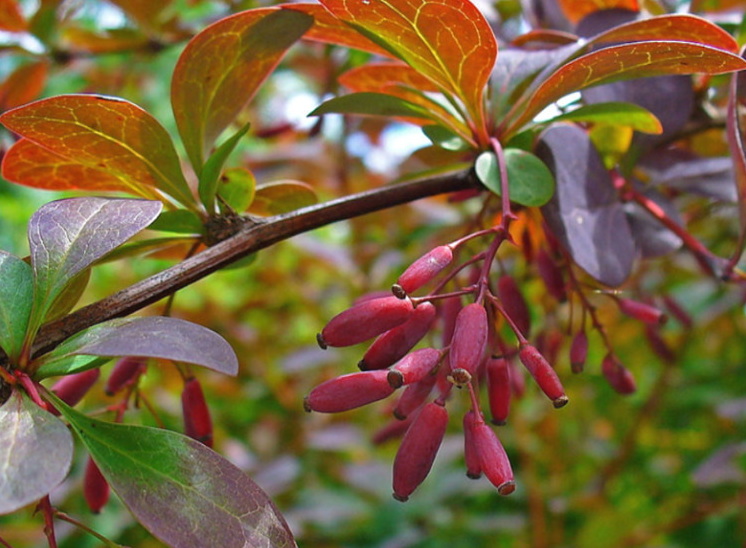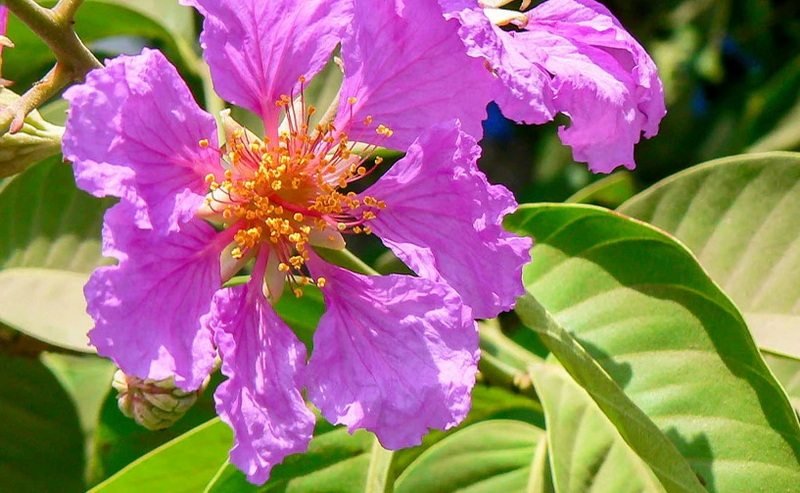Content Menu
● Introduction to Banaba Leaf Extract
>> Chemical Composition
>> Traditional Use
● Applications in Pharmaceuticals
>> Diabetes Management
● Blood Sugar Regulation Mechanism
● Sample data
>> Weight Management
>> Antioxidant and Anti-inflammatory Effects
>> Cardiovascular Health
>> Anticancer and Antiviral Effects
>> Neuroprotective Effects
● Potential Future Applications
>> Cosmetic Applications
● Safety and Side Effects
>> Regulatory Status
● Future Research Directions
● Public Awareness and Education
● Sustainability and Environmental Impact
● Conclusion
● Frequently Asked Questions
>> 1. What is Banaba Leaf Extract Used For?
>> 2. How Does Banaba Leaf Extract Lower Blood Sugar?
>> 3. Are There Any Side Effects of Banaba Leaf Extract?
>> 4. Can Banaba Leaf Extract Help with Weight Loss?
>> 5. Is Banaba Leaf Extract Available in Different Forms?
● Citations:
Banaba leaf extract, derived from the plant Lagerstroemia speciosa, has been a cornerstone in traditional medicine for centuries, particularly in Southeast Asia. Its applications in pharmaceuticals are diverse and promising, ranging from diabetes management to antioxidant and anti-inflammatory effects. This article delves into the various uses of banaba leaf extract, its benefits, and potential future applications.

Introduction to Banaba Leaf Extract
Banaba leaf extract is rich in corosolic acid, a compound known for its anti-diabetic properties. It has been traditionally used to treat diabetes and is now gaining attention for its potential in weight management, cardiovascular health, and as an antioxidant.
Chemical Composition
Banaba leaves contain several bioactive compounds, including corosolic acid, which is responsible for many of its health benefits. The extract typically contains 1% to 5% corosolic acid by HPLC (High-Performance Liquid Chromatography) assay.
Traditional Use
In folk medicine, banaba leaves have been used to treat diabetes, particularly in the Philippines and other parts of Southeast Asia. The leaves are often consumed as tea or used in traditional remedies.
Applications in Pharmaceuticals
Diabetes Management
Banaba leaf extract is primarily used to help regulate blood sugar levels in individuals with type 2 diabetes. It is believed to enhance insulin sensitivity, thereby aiding in the management of diabetes. Studies have shown that corosolic acid can mimic insulin action, facilitating glucose uptake into cells.
Blood Sugar Regulation Mechanism
Sample data
x = [1, 2, 3, 4, 5]
y = [10, 8, 6, 4, 2]
plt.plot(x, y)
plt.xlabel('Time')
plt.ylabel('Blood Sugar Levels')
plt.title('Effect of Banaba Leaf Extract on Blood Sugar')
Weight Management
Banaba leaf extract is also used in weight loss supplements due to its potential in regulating appetite and preventing fat accumulation. It may help reduce body weight by enhancing fat metabolism and improving insulin sensitivity.
Antioxidant and Anti-inflammatory Effects
The extract has shown significant antioxidant and anti-inflammatory properties, which can help protect against oxidative stress and inflammation in the body. These effects are crucial in preventing chronic diseases such as heart disease and cancer.
Cardiovascular Health
Some evidence suggests that banaba leaf extract may improve cardiovascular health by reducing cholesterol levels and improving blood circulation. This can help prevent conditions like atherosclerosis and hypertension.
Anticancer and Antiviral Effects
Test-tube studies indicate potential anticancer effects by promoting programmed cell death in certain cancer cells. Additionally, it may offer protection against viruses like the human rhinovirus, which causes the common cold.
Neuroprotective Effects
Recent research suggests that banaba leaf extract may have neuroprotective properties, potentially helping to prevent neurodegenerative diseases such as Alzheimer's and Parkinson's.

Potential Future Applications
Given its diverse health benefits, banaba leaf extract could be further explored for its potential in treating metabolic syndrome, enhancing kidney protection during chemotherapy, and as an antithrombotic agent to prevent blood clots.
Moreover, its antioxidant properties might be beneficial in skincare products, protecting the skin from oxidative damage and improving skin health.
Cosmetic Applications
In the cosmetic industry, banaba leaf extract could be used in skincare products to enhance skin elasticity and reduce signs of aging due to its antioxidant properties.
Safety and Side Effects
While banaba leaf extract is generally considered safe, it may cause gastrointestinal side effects such as nausea and diarrhea in some individuals. It is recommended to consult a healthcare provider before using it, especially if you have any underlying health conditions or are taking medications.
Regulatory Status
In many countries, banaba leaf extract is classified as a dietary supplement rather than a pharmaceutical drug. This means it is not subject to the same rigorous testing as prescription medications but is still regulated to ensure safety and quality.
Future Research Directions
Future studies should focus on the long-term effects of banaba leaf extract on chronic diseases and its potential interactions with other medications. Additionally, exploring its efficacy in combination with other natural compounds could lead to more effective treatments.
Public Awareness and Education
Raising public awareness about the benefits and potential risks of banaba leaf extract is crucial. This includes educating consumers on how to choose high-quality products and the importance of consulting healthcare professionals before use.
Sustainability and Environmental Impact
As demand for banaba leaf extract increases, ensuring sustainable harvesting practices is essential to protect the environment and maintain the long-term viability of this natural resource.
Conclusion
Banaba leaf extract offers a wide range of applications in pharmaceuticals, from diabetes management to cardiovascular health. Its potential benefits in weight management, antioxidant support, and even anticancer effects make it a promising natural remedy. However, further research is needed to fully explore its therapeutic potential.
Banaba leaf extract represents a promising area in pharmaceuticals, offering a range of health benefits from diabetes management to antioxidant effects. As research continues to uncover its potential, it is essential to ensure sustainability, safety, and public awareness to maximize its therapeutic value.

Frequently Asked Questions
1. What is Banaba Leaf Extract Used For?
Banaba leaf extract is primarily used for diabetes management, weight loss, and as an antioxidant. It is also explored for its anti-inflammatory, anticancer, and cardiovascular health benefits.
2. How Does Banaba Leaf Extract Lower Blood Sugar?
Banaba leaf extract is believed to enhance insulin sensitivity, which helps regulate blood sugar levels in individuals with type 2 diabetes.
3. Are There Any Side Effects of Banaba Leaf Extract?
While generally considered safe, banaba leaf extract may cause gastrointestinal side effects in some individuals. It is recommended to consult a healthcare provider before use.
4. Can Banaba Leaf Extract Help with Weight Loss?
Yes, banaba leaf extract is used in weight loss supplements due to its potential in regulating appetite and preventing fat accumulation.
5. Is Banaba Leaf Extract Available in Different Forms?
Yes, banaba leaf extract is available in various forms, including capsules, tablets, and teas, making it accessible for different preferences and needs.
Citations:
[1] https://www.drugs.com/npp/banaba.html
[2] https://naturmedscientific.com/banaba-leaf/
[3] https://www.sohu.com/a/846632226_121124322
[4] https://www.jairamdass.com/product/banaba-leaves-extract/
[5] https://www.rxlist.com/supplements/banaba.htm
[6] https://patents.google.com/patent/CN105456132A/zh
[7] https://www.healthline.com/nutrition/banaba-leaf
[8] https://www.verywellfit.com/the-benefits-of-banaba-89413
[9] https://patents.google.com/patent/CN104640555A/zh
[10] https://pubmed.ncbi.nlm.nih.gov/22095937/
[11] https://www.rialpharma.it/en/banaba-leaf/
[12] https://www.maximizemarketresearch.com/market-report/global-banaba-leaf-extract-market/77773/






























